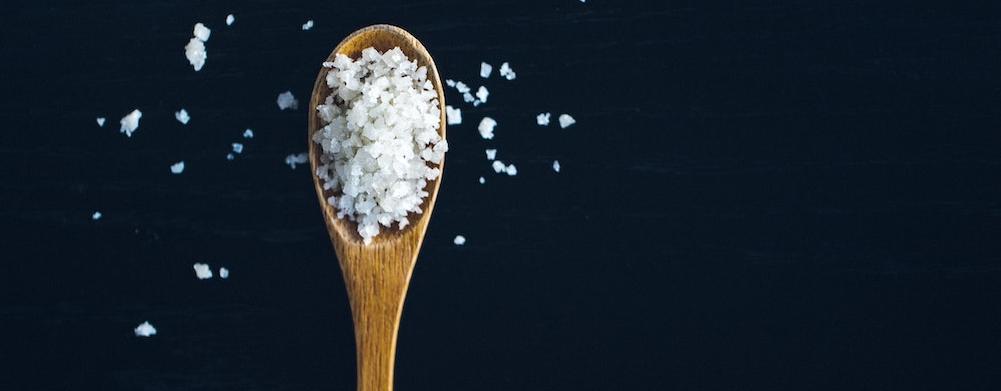The 8th-14th March is World Salt Awareness Week and this year’s theme is More Flavour, Less Salt. With restaurants closed it’s a good time to experiment with adding new flavours to the food you cook at home, especially if you can do this in a healthy way.
Our bodies need a small amount of salt to function, but most of us know we shouldn’t eat too much because it’s not good for us. The recommendation is that adults should have no more than 6g (just over a teaspoon) a day, however, in the UK the average daily intake is 8.1g.
Why do many of us have too much salt in our diets? Salt is hidden in a lot of unexpected places, so even if you don’t add it during cooking or sprinkle it on at the table you could still be eating too much. Many processed foods are high in salt, for example;

- Bread
- Breakfast cereal
- Processed meats, fish and seafood
- Ready meals and takeaways
- Cheese
- Crisps, nuts and popcorn
- Biscuits and cakes
- Table sauces, such as ketchup and mayonnaise
- Cooking sauces, including pasta sauces and stock cubes
- Ready-made soups
It’s estimated that ¾ of the salt we consume comes from these less obvious sources that are a regular part of our diet. Eating too much salt can cause your blood pressure to increase, putting you at greater risk of heart disease, stroke and kidney disease.

- checking the traffic light labels on food packaging and choosing lower salt options if they’re available
- seasoning foods with less salt but keeping it full of flavour by using garlic, chilli, citrus fruits, pepper, herbs and spices
- cooking more from scratch using fresh ingredients to make our own soups and sauces
- replacing standard salt with low sodium salt
Another thing we can do is make sure we have enough potassium in our diet. Potassium causes sodium (the part of salt responsible for increasing blood pressure) to leave the body in the urine, so we have less sodium left in our bodies. Around 1 in 5 people in the UK are thought to have diets that give them less than the recommended amount of potassium, which is 3.5g. Foods that are rich in potassium include;
- Fruit (particularly bananas)
- Vegetables
- Meat
- Fish and shellfish
- Nuts and seeds
- Beans and pulses
- Milk
A banana contains around 1/6 of the recommended daily potassium intake. Some of the potassium is lost from foods during processing, so raw foods such as fruits, salads, nuts and seeds are often a better source. These foods also provide you with other nutrients your body needs so they are a good addition to the diet. We should all aim for 5 portions of fruit and vegetables a day – a portion is 80g, for example 1 banana, ½ an avocado, 7 cherry tomatoes, 3 tablespoons of peas, 1 apple, 2 satsumas, 7 strawberries each count as a portion.
Too much potassium can also be harmful, so the best approach is a balanced and varied diet containing lots of different healthy foods, without an excess of any one particular food.

Dr Susie Jennings (RNutr) is Senior Lecturer. She is a Registered Nutritionist specialising in Public Health Nutrtion. Susie has a very strong interest in mental and physical wellbeing and the arts and performs as part of a fire dance troupe. She also enjoys preparing cuisines from around the world using sustainable plant-based ingredients.
Photo Credits
- Photo by Jason Tuinstra on Unsplash
- Photo by Calum Lewis on Unsplash

